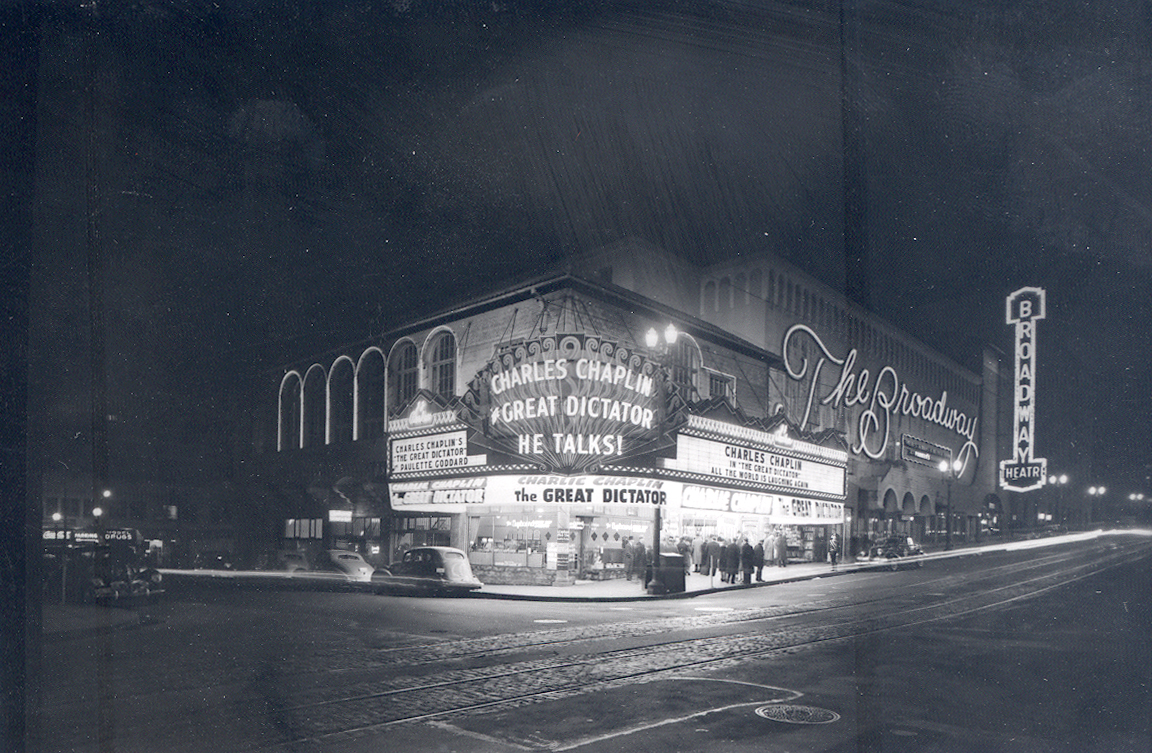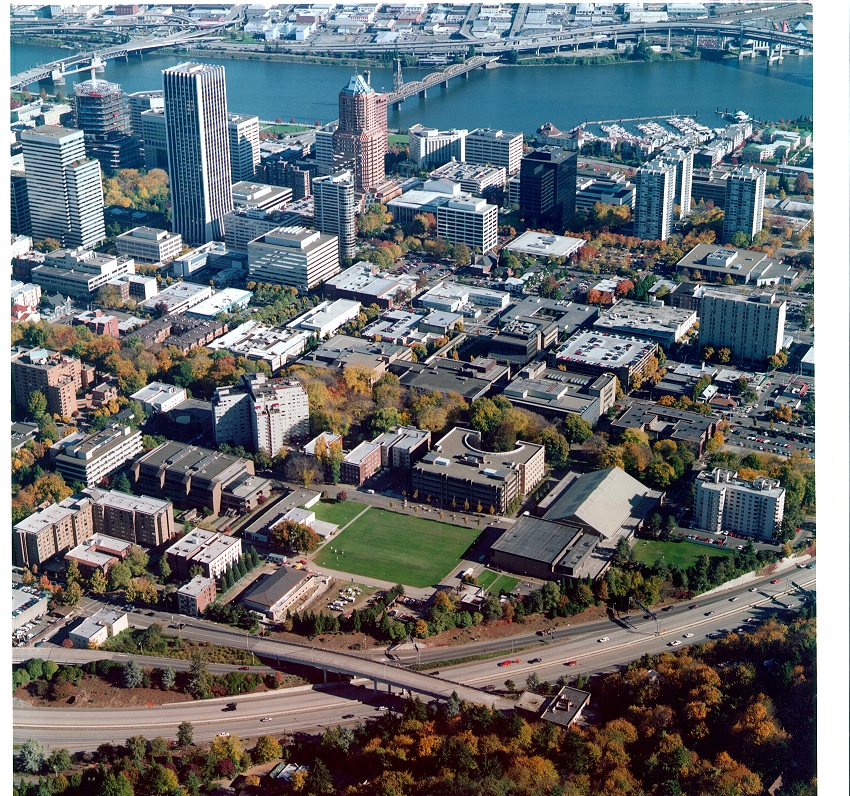Film educator Andries Deinum transformed Portland’s cultural and intellectual landscape through his creative use of film and television in education and his pioneering development of urban studies. His Center for the Moving Image (CMI) at Portland State University (PSU), established in 1969, laid the groundwork for the Northwest Film Center and the city’s thriving film community. Deinum also helped found Film Quarterly in 1958 and was a member of its editorial board until 1994.
A native of Friesland, The Netherlands, Deinum came to the United States in 1938 to study at Stanford University. Unable to return home due to World War II, he settled in Los Angeles, where he studied filmmaking and worked with documentary filmmaker Joris Ivens and 20th Century-Fox director Irving Pichel. Deinum was recruited by the Office of Strategic Services and served in London.
Returning to Hollywood after the war, Deinum worked for Warner Bros. and Universal Studios. There he met and became special assistant to renowned German director Fritz Lang. When Lang’s company folded, Deinum entered the University of California at Los Angeles, earning a master's degree in theater arts and completing a documentary on artist Rico LeBrun.
Deinum’s teaching career began at the University of Southern California, where he also curated the Farmington Collection of books and periodicals on film. In 1955, he was fired for refusing to cooperate with the House Un-American Activities Committee. Despite extensive protests by students and faculty, the dismissal held, and in 1957 Deinum moved to Portland, Oregon.
Hired by the Portland Extension Center and Multnomah County Library, Deinum launched a weekly film series at the library and began teaching film classes as a self-described "refugee from occupied Hollywood." He lectured on film and art at the Portland Art Museum, the City Club, regional colleges, and civic groups that were hungry for the humanistic and scholarly perspective he brought to topical concerns.
In 1960, Deinum confronted the Portland City Council over censorship of The Lovers, a film directed by Louis Malle, and drew media attention to the role of the arts in public life. He believed that public television, then in its infancy, held the potential "to personalize the impersonalization of mass media . . . the packaging of shows that left them devoid of content." His 1961 television series, Speaking for Myself, sought citizen involvement in "thinking and feeling" about civic life. Adopting the personal essay form delivered in a conversational mode, Deinum shared his views and invited viewers to respond by writing letters or appearing on the show.
A leader in adult education, Deinum proposed in 1963 that the Portland Continuation Center “move massively and comprehensively into . . . urban studies.” He developed PSU’s library holdings to support urban studies and generated community dialogue on urban development through a series of films, lectures, and radio broadcasts involving the Portland Art Commission.
When National Educational Television (NET) asked Deinum to coordinate local activities related to the series Metropolis, Creator or Destroyer, he mobilized more than thirty neighborhood discussion groups that used the shows and a book of readings to focus attention on the problems of urban growth. Deinum concluded the month-long project by organizing a high-profile conference co-sponsored by the Portland Continuation Center and a citizen group, Metropolitan Area Perspectives, to focus on local issues.
Deinum's innovative television series Urban Mosaic, begun in 1965, offered "weekly scrutinies of our immediate environment and its impact on human values." The mosaic consisted of discussions, confrontations, filmed reports and interviews assembled each week within a flexible time slot. He made the show a place where Portland’s officials, architects, realtors, and diverse citizens might encounter one another. By leading the effort to bring the arts and public media together to play a central role in city planning, Deinum helped stimulate collaboration between PSU and the city and supported an Urban Studies Committee, which he served as associate director until 1967.
Meanwhile, the numbers of students attending Deinum's film classes grew steadily. With the hiring of Tom Taylor in 1965, the program expanded into film production, leading to the creation of the Center for the Moving Image at PSU. Until it was eliminated from the university's budget in 1981, the center was the most complete, professional filmmaking and film studies program in the Northwest. The Andries Deinum Prize for Visionaries and Provocateurs at Portland State University is named in his honor.
-
Andries Deinum.
Courtesy of Brooke Jacobson
-
![]()
Andries Deinum.
Courtesy Portland State University
Related Entries
-
![Oregon and the Film Industry]()
Oregon and the Film Industry
Early Filmmaking in Oregon Motion pictures debuted in Oregon in 1894 w…
-
![Portland State University]()
Portland State University
Located in downtown Portland, Portland State University is Oregon’s urb…
-
![Vanport Extension Center]()
Vanport Extension Center
The Vanport Extension Center grew from a converted shopping mall and re…
Map This on the Oregon History WayFinder
The Oregon History Wayfinder is an interactive map that identifies significant places, people, and events in Oregon history.
Further Reading
Deinum, Andries. “The Humanity of Van Gogh" (lecture). Reprinted in Speaking for Myself: A Humanist Approach to Adult Education For A Technical Age, Notes and Essays for Adults. No. 52. Boston: Center for the Study of Liberal Education for Adults at Boston University, 1966.
Oregonian, March 16, 1964.








